

Subscribe to SCP News
Lyfe Cycle Thinking and the Food Sector (olive oil) Course in Beirut
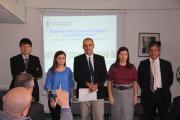
Ms. Olfat Hamdan, Head from the Department of Chemical Safety from the Service of Environmental Technology of the Lebanese Ministry of Environment and CP/RAC Focal Point in Lebanon, welcomed the assistants and opened the course.
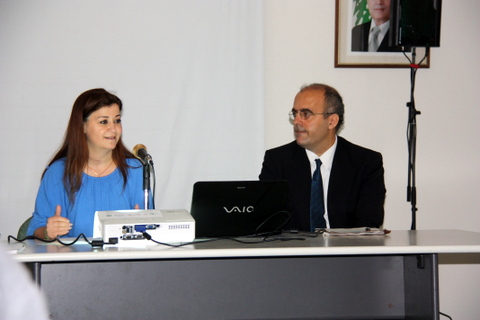 Mr. Frederic Gallo, Project manager from UNEP/MAP/CPRAC presented CP/RAC and announced that Europeaid (a Directorate General for Development and Cooperation of the European Commission) has granted UNEP/MAP/CPRAC and UNEP/DTIE with a 2.9 million euros project in order to develop specific measures of Sustainable Consumption and Production (SCP) and Green Economy objectives in the context of the Barcelona Convention and the UNEP/MAP work Plan; and also to support 9 Mediterranean ENPI (European neighbourhood policy) countries (Lebanon, Morocco, Algeria, Tunisia, Libya, Egypt, Jordan, Israel and Palestinian occupied Territories) in the process of development and approval of SCP National Action Plans. One of the expected outputs of these Plans will be the integration of Life Cycle development in products and services.
Mr. Frederic Gallo, Project manager from UNEP/MAP/CPRAC presented CP/RAC and announced that Europeaid (a Directorate General for Development and Cooperation of the European Commission) has granted UNEP/MAP/CPRAC and UNEP/DTIE with a 2.9 million euros project in order to develop specific measures of Sustainable Consumption and Production (SCP) and Green Economy objectives in the context of the Barcelona Convention and the UNEP/MAP work Plan; and also to support 9 Mediterranean ENPI (European neighbourhood policy) countries (Lebanon, Morocco, Algeria, Tunisia, Libya, Egypt, Jordan, Israel and Palestinian occupied Territories) in the process of development and approval of SCP National Action Plans. One of the expected outputs of these Plans will be the integration of Life Cycle development in products and services.
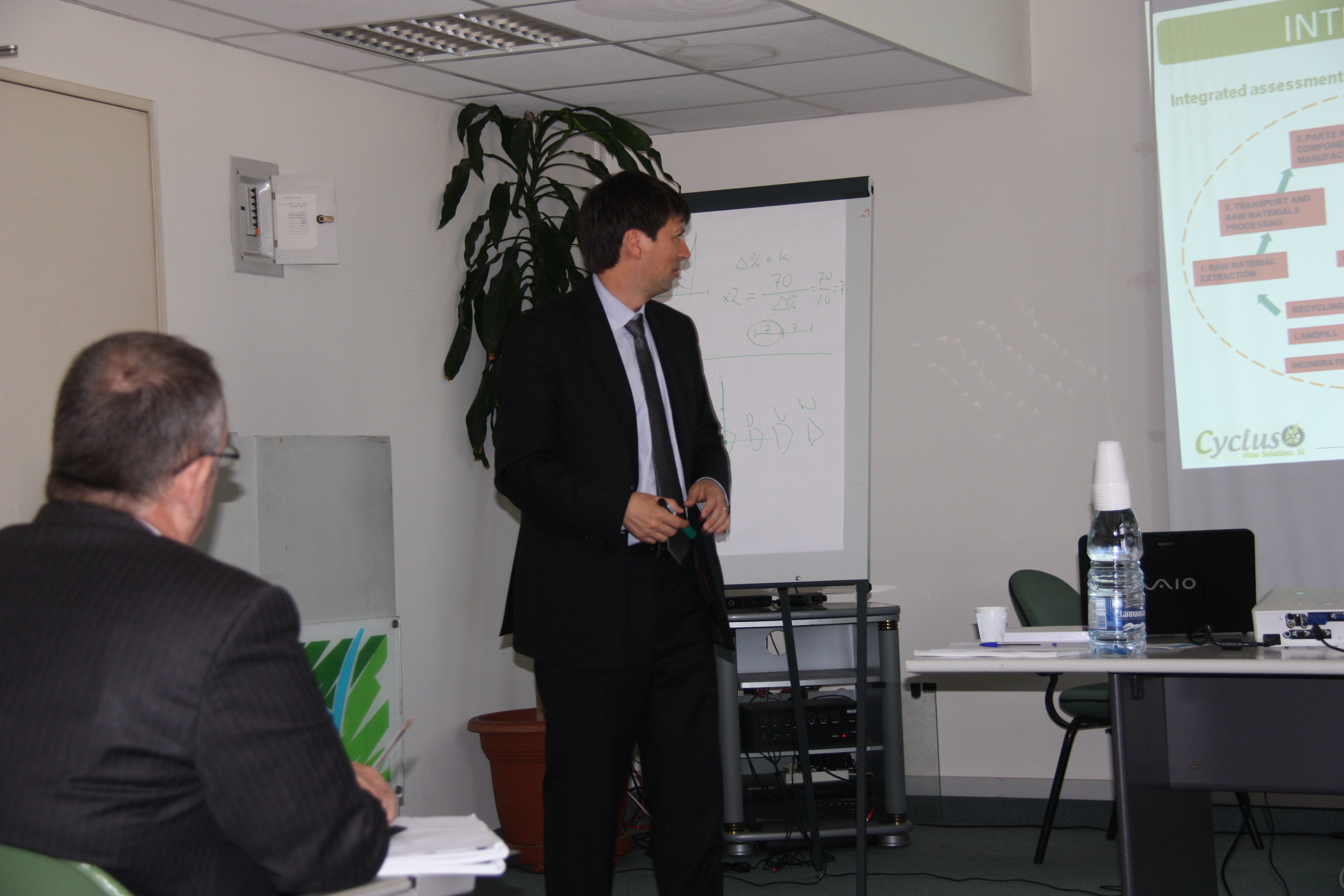 Mr. Pere Fullana, PhD, Director of the UNESCO Chair in Life Cycle and Climate Change at the University Pompeu-Fabra of Barcelona (ESCI-UPF), CEO at Cyclus Vitae Solutions, S.L. and member of the International Life Cycle Board in UNEP presented LCA (Life Cycle Analysis) as a tool to measure the environmental impact of products and services, and introduced LCA and Carbon Footprint in the food sector, with different good practice examples of Environmental Climate Declarations.
Mr. Pere Fullana, PhD, Director of the UNESCO Chair in Life Cycle and Climate Change at the University Pompeu-Fabra of Barcelona (ESCI-UPF), CEO at Cyclus Vitae Solutions, S.L. and member of the International Life Cycle Board in UNEP presented LCA (Life Cycle Analysis) as a tool to measure the environmental impact of products and services, and introduced LCA and Carbon Footprint in the food sector, with different good practice examples of Environmental Climate Declarations.
Ms. Elvira Carles, Director of the Enterprise and Climate Foundation, presented the results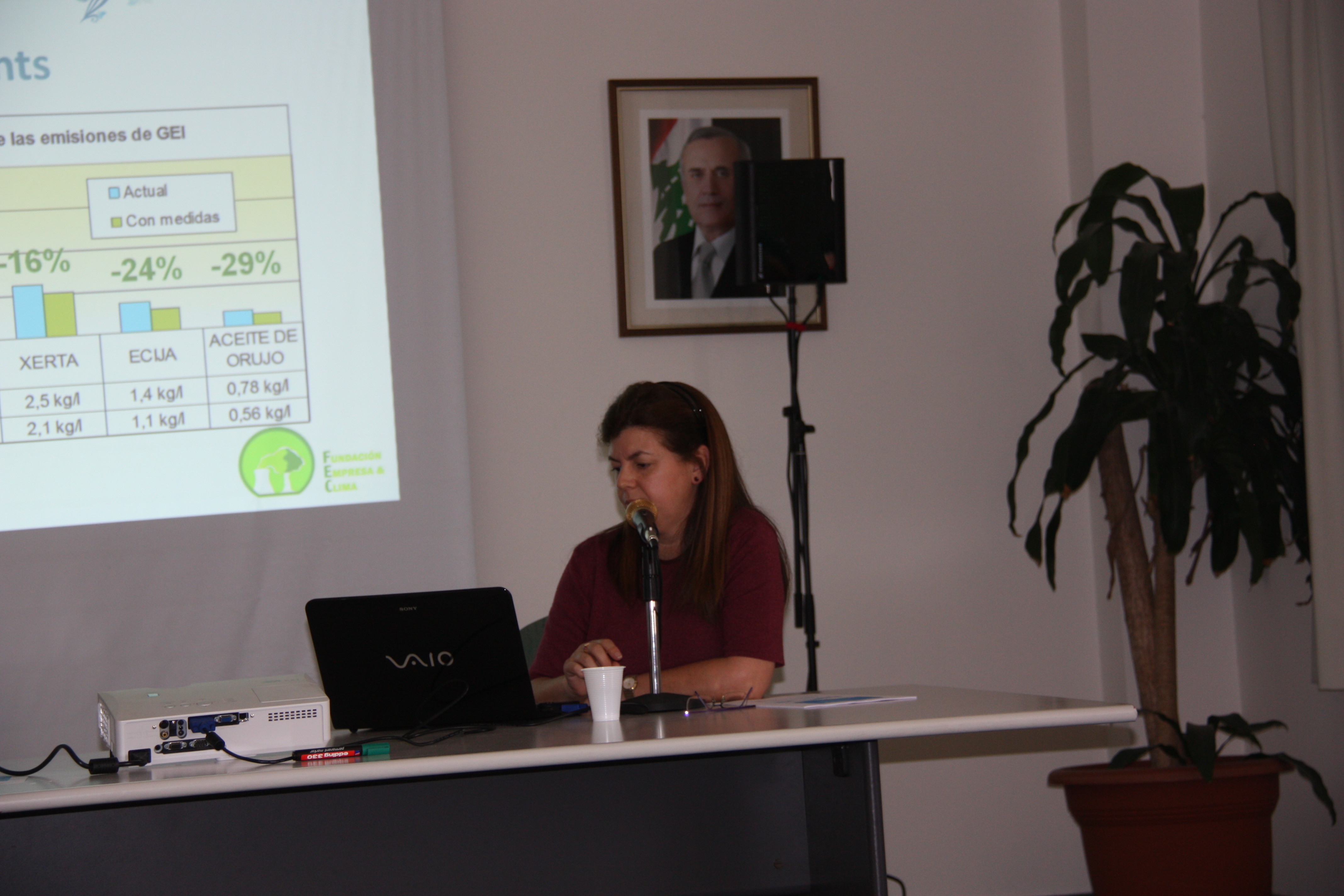 of the project “Carbon footprint in the process of elaboration of the olive oil”. This project aimed at calculate the footprint of all steps of olive oil production process; calculate the footprint of the different technologies used in the mills and finally to find actions to reduce emissions of GHG of the olive oil production sector. As findings of the study, it was demonstrated that in the olive mills audited, the carbon footprint for the three-phase extraction system is twice higher than for the 2-phase system.
of the project “Carbon footprint in the process of elaboration of the olive oil”. This project aimed at calculate the footprint of all steps of olive oil production process; calculate the footprint of the different technologies used in the mills and finally to find actions to reduce emissions of GHG of the olive oil production sector. As findings of the study, it was demonstrated that in the olive mills audited, the carbon footprint for the three-phase extraction system is twice higher than for the 2-phase system.
As for the improvement opportunities detected, the following measures can be highlighted.
- Farming: Optimization of the transport home-work of the workers and of transport in the fields.
- Milling: Change to 2-phase extraction technology.
- Oil distribution: Choose appropriate material and volume of containers and bottles and promote local distribution for both virgin oil and orujo oil.
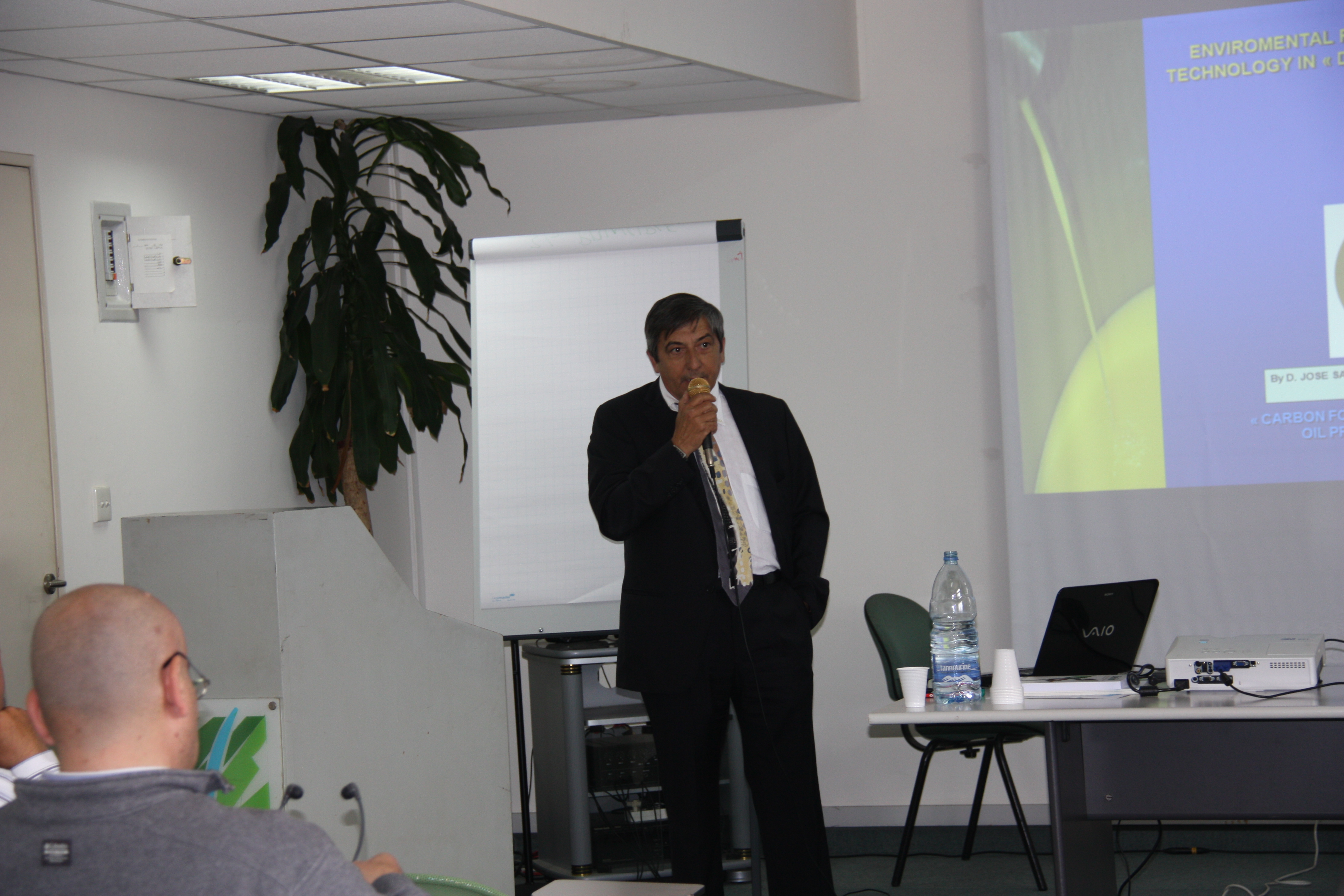 Mr. Josep Safont, Manager of the olive oil mill “Producció Ecológica Roca Cabrera” in Xerta (Catalunya, Spain) presented an overview of the management of his mill which minimizes the environmental footprint of the activity and has a “zero waste” philosophy.
Mr. Josep Safont, Manager of the olive oil mill “Producció Ecológica Roca Cabrera” in Xerta (Catalunya, Spain) presented an overview of the management of his mill which minimizes the environmental footprint of the activity and has a “zero waste” philosophy.
It has to be highlighted the following characteristics of his ecological mill:
- The fertilization of the 10.407 olive trees orchard is made by means of manure, compost from the liquid pomace of the mill and microalgae.
- The soil management is made with no-till, vegetation cover, and control with animal grazing and/or trimmer machine
- The water from the olives washing is stored in a 500 m3 deposit and reused for irrigation.
The phytosanitary treatments follow strictly the CCPAE (Catalan Council for Organic Farming) procedures in order to obtain the eco-label grade.
- The energy consumed comes mainly from photo-voltaic panels and pit-boilers.
- There is a composting process from all the wastes of the mill, trimming of the orchards and manure from the animals used for the vegetation growth control of the orchards.
- Each and every olive tree of the orchard is identified with a plaque indicating variety, polygon, plot, sector and number of the tree, in order to obtain a total traceability of each batch of oil.

The seminar was attended by around 30 people, mainly from the Ministry of Environment and from different environmental organizations and universities.















